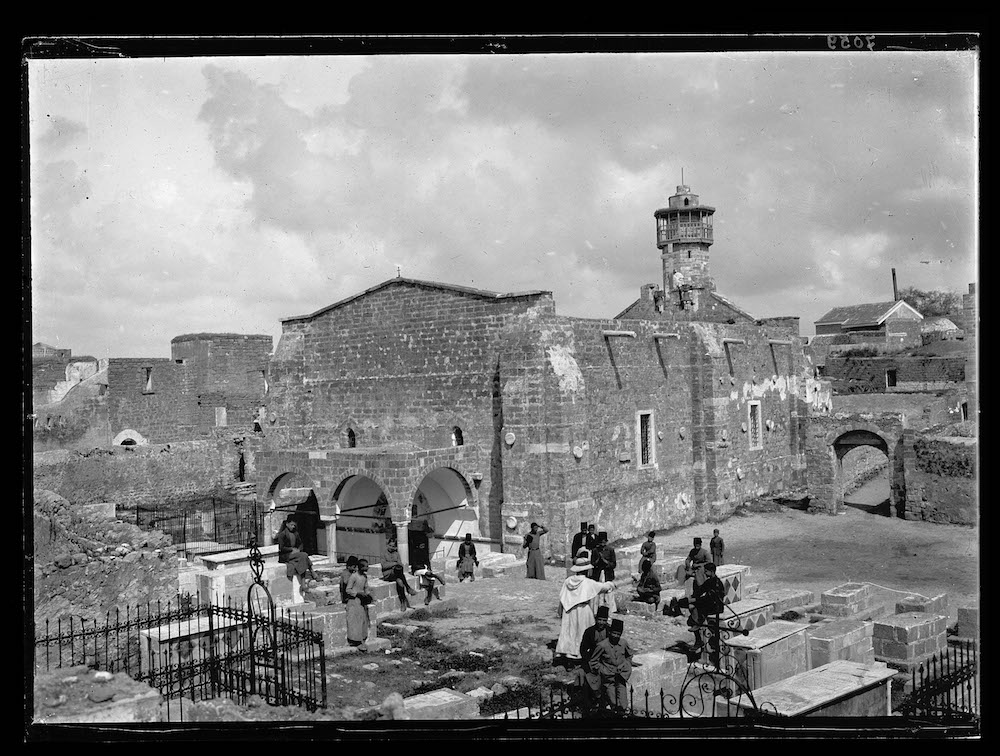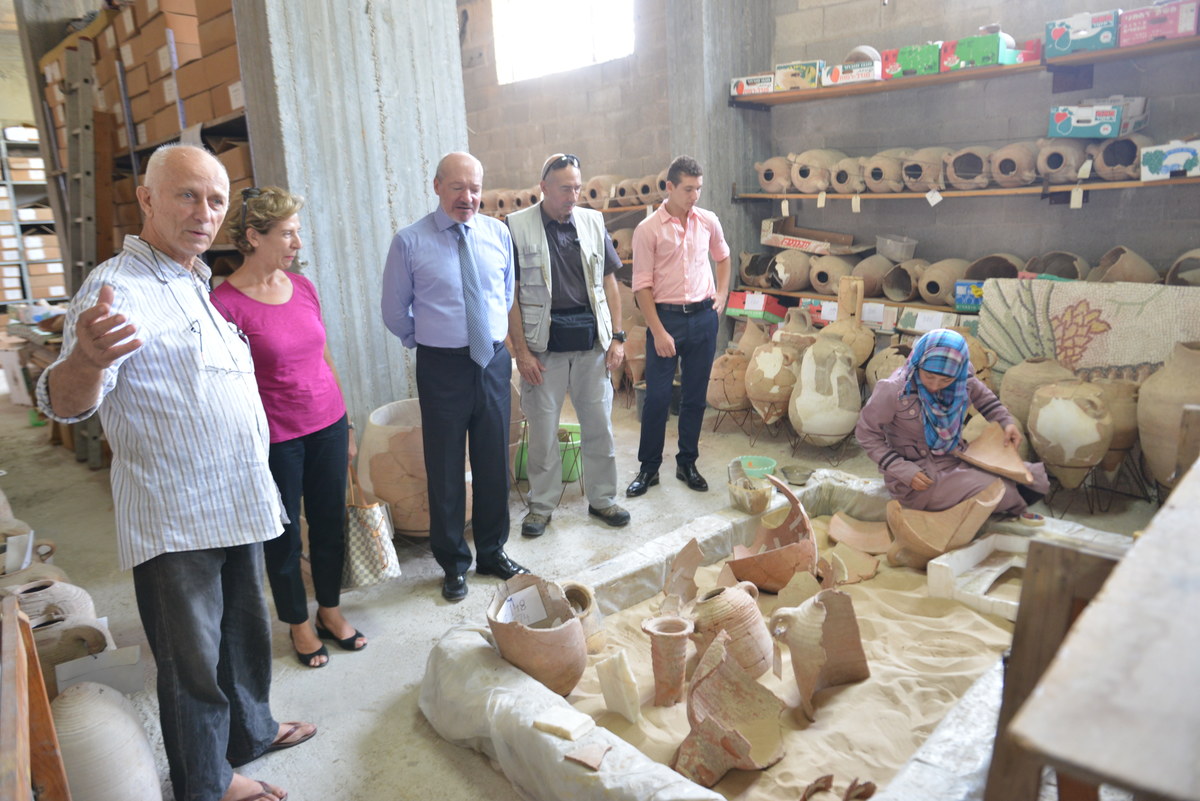RIYADH: Since the Oct. 7 attack by Hamas, Israel’s war with the militant Palestinian group has wreaked unprecedented havoc on the Gaza Strip, demolishing entire neighborhoods and displacing more than a million people.
While the tragic loss of life is understandably being deplored in the strongest possible terms, people are not the only casualties. Cultural treasures — including libraries, art galleries and historical artifacts — are also being destroyed, meaning institutions that have offered Gaza’s civilian population respite from the trauma of occupation are being lost to the world.
In hindsight, some regional conflicts, in Mosul and Raqqa for instance, have been followed by the rebuilding of creative spaces and cultural institutions. But while the conflict in Gaza continues, and in some places intensifies, most cultural practitioners there are simply trying to survive.
The war has already claimed the lives of Palestinian intellectuals: Refaat Alareer, a 44-year-old Palestinian poet and University of Gaza professor, for example, was killed in an Israeli airstrike on Dec. 7.
“I am still alive, but without life,” one Gaza-based artist told Arab News on condition of anonymity.

Photos show the Omari Mosque, the oldest and biggest in Gaza, before and after it suffered damage, in the course of the Israel-Hamas war. (Social media)
“The situation is very, very difficult and terrifying. There was no simple food or drinking water available. We die slowly.” Several other artists and cultural practitioners Arab News tried to reach were unable to respond either due to poor network connection or for fear of their safety.
Israel says 1,200 people were killed and 240 taken hostage in the Oct. 7 Hamas attack. A number of hostages were later released during a humanitarian pause. Health authorities in Hamas-run Gaza say Israel has killed more than 17,177 people in its retaliatory campaign, including about 7,000 children.
As of Saturday, Israeli troops and Hamas militants remained locked in deadly combat for control of Khan Younis, Gaza’s second-biggest city, with Palestinian civilians reportedly facing increasing difficulty in finding shelter and access to humanitarian aid.
Both the Gaza Municipal Library and the Rashad Al-Shawa Cultural Center — the latter was the site of a meeting between then-US President Bill Clinton and Yasser Arafat 25 years ago — have been wrecked by shelling and firefights after nearly two months of war.
Israeli aircraft “targeted and turned the public library building into rubble and destroyed thousands of books, titles and documents recording the city’s history and development, as well as the destruction of the library’s language courses hall and other library facilities,” a Nov. 27 statement from Gaza Municipality read, also noting the destruction of the cultural center and the municipal printing press.

Objects damaged Al-Qarara Cultural Museum in Gaza. Founder and Director Mohammed Abu Leila said: “The museum was destroyed by the explosions nearby. Glass and Roman bottles, the facade of the building, as well as its doors and windows, were destroyed, and the ceilings were cracked. I am concerned about the museum and the collections.” (Supplied)
Fida Touma, director-general of the Ramallah-based A.M. Qattan Foundation, which supports the preservation of arts in Palestine and the Arab world, told Arab News that “there are no official listings of monuments/culture centers, as shelling has not stopped, and communications are cut.”
The International Council on Monuments and Sites stated on Facebook: “It is not possible to accurately determine or describe all damage. Homes, schools, hospitals, religious buildings, universities, museums, farm lands and other facilities have been destroyed. In addition to these acts of genocide, Israeli Minister of Heritage Amihai Ben-Eliyahu has publicly called for a nuclear bombing against Gaza.
“ICOMOS Palestine published a statement on Nov. 7 denouncing this statement. The Israelis used most of the weapons and war methods prohibited by the Geneva Convention and all relevant conventions. Their aim is to eradicate life in Gaza, as well as its heritage, history, memories and archives. Israel is ethnic cleansing the Palestinian people physically and erasing its history and memory.”
FASTFACTS
* Expansion of war in southern Gaza follows initial Israeli bombardment of areas in the north, including Gaza City.
* With Mediterranean Sea to the west, closed borders with Egypt and Israel to the south and east, space for people to go to is shrinking.
More than 100 cultural institutions in Gaza have been damaged as a result of the Israeli military offensive, according to a recent survey by the group Heritage for Peace. They include the Church of Saint Porphyrius, thought to be the third-oldest church in the world.
The Palestine Ministry of Culture had listed a number of sites in Arabic that it says are known to be destroyed or damaged. These include multiple educational and cultural centers, at least three public libraries and archives, Al-Zawiya market, the centuries-old Great Mosque of Gaza, and two museums.

Photos of the Rashad Al-Shawa Cultural Center, before and after they suffered damage, in the course of the Israel-Hamas war. (Social media)
Al-Qarara Cultural Museum founder and director Mohammed Abu Leila, who fled with his family to Rafah near the Egyptian border, described via WhatsApp how “we left the museum and migrated.”
He said: “There was heavy shelling and terrifying bombing after (midnight) until dawn. We saw death coming, with fear, horror, and pain. In the morning, we left the village and fled to the city of Khan Younis with my family, sister and wife. Then we fled to the city of Rafah.”
Abu Leila said the museum’s collection of 5,000 pieces, spread across the outer yard, the ground floor and the first floor, includes stones, pottery, coins, documents, dresses, agricultural tools, and women’s ornaments.
“The museum was destroyed by the explosions nearby,” he told Arab News. “Glass and Roman bottles, the facade of the building, as well as its doors and windows, were destroyed, and the ceilings were cracked. I am concerned about the museum and the collections. I can feel it is in great danger.”
Some members of the Palestinian diaspora in North America are nevertheless trying to find ways to preserve Gaza’s culture and support artists from afar.

Seen here in a photo from the 1920s, the Church of Saint Porphyrius, above, is one of many cultural landmarks damaged by the war between Israel and Hamas. (Father Savignac/Ecole Biblique, Jerusalem/AFP)
On Nov. 21, the Palestine Museum in the US announced loan opportunities for original works by eight Gaza-based artists, saying in a statement: “This unique initiative aims to showcase the talent and creativity of Palestinian artists, while fostering cultural exchange and dialogue.”
The program also includes around 200 drawings created by children from Gaza, which explore “identity, resilience, resistance and hope” and “offer a unique glimpse into the world of Gaza’s children and their artistic expressions.”
Faisal Saleh, the museum’s founder and director, said that funds generated can help alleviate the desperate circumstances faced by many of Gaza’s artists, enabling them to sustain their creative practices.
“In the face of the devastating Israeli bombing campaign and the impact it has had on Gaza’s civilian infrastructure and population, it is vital that we stand in solidarity with Gaza artists and provide them with platforms to showcase their incredible talent,” Saleh told Arab News.

French archaeologists at a French Palestinian archaeological storage site in Gaza City. (File photo by Fadel Al-Utol)
“Art has a unique power to transcend borders and ignite empathy and understanding, and we believe that by amplifying the voices of Gaza artists, we can contribute to a broader dialogue and raise awareness about the situation on the ground in Gaza.
“We call upon museums and art institutions worldwide to join us in supporting Gaza artists by participating in our art loan program and providing opportunities for their work to be showcased and appreciated,” he continued. “Together, we can use the transformative power of art to create meaningful change and rebuild a brighter future for Gaza’s artistic community.”
While outside efforts offer some hope of keeping Palestinian art — whether ancient, modern or contemporary — alive, the war is taking a tragic toll.
As another artist in Gaza told Arab News on condition of anonymity, “We are simply trying to survive. We have no food, no water, no art right now.”























